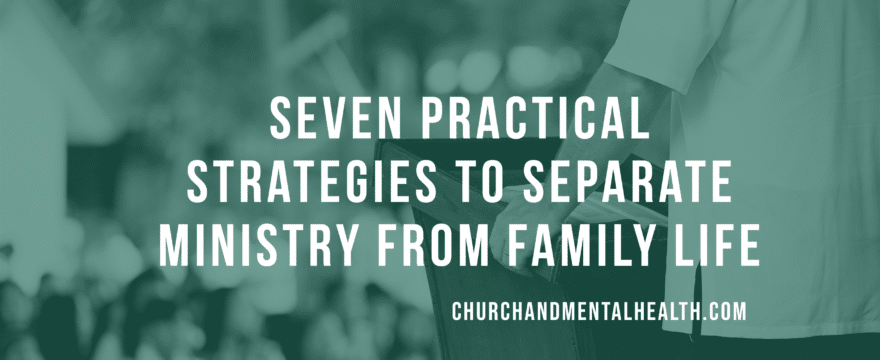As a Christian counselor, I’ve walked alongside many pastors and ministry leaders who face the unique challenge of balancing their calling with the need to nurture their families and personal well-being. Pastoral ministry is a beautiful yet demanding vocation, often marked by emotional exhaustion, secondary trauma, and blurred boundaries between work and home.
For pastors, congregational needs can feel omnipresent, leading to burnout and strain in personal relationships. To thrive both as a spiritual leader and as a family member, it’s essential to establish boundaries and practices that protect your home life from the demands of ministry.
Here are practical strategies to help you create that balance:
1. Recognize the Toll of Secondary Trauma
Ministry often involves bearing the burdens of others. Whether it’s counseling a grieving family or walking alongside someone in crisis, pastors frequently encounter stories of pain and loss. This exposure can lead to secondary trauma—a form of emotional distress from empathizing with those who are suffering. Build a routine of “debriefing” after emotionally intense encounters. Journal, pray, or talk with a trusted mentor about what you’re carrying before stepping into your home.
2. Establish Physical and Emotional Boundaries
It’s tempting to bring work home—answering emails at the dinner table, mentally replaying difficult conversations, or interrupting family time for ministry calls. While emergencies do happen, most ministry demands can wait. Create a clear end to your workday. Communicate with your church leadership and congregation about “off hours” and trust your team to handle non-urgent matters during those times.
3. Lean on Sabbath Rest
The biblical principle of Sabbath rest applies to pastors as much as it does to their congregants. Without intentional rest, the line between ministry and home becomes increasingly blurry, leaving little space for renewal. Dedicate a full day each week to step away from ministry responsibilities. Use this time for worship, hobbies, and connection with your family.
4. Prioritize Emotional Self-Care
You can’t pour into others from an empty cup. Taking care of your mental health equips you to lead and love others well. Engage in regular counseling or spiritual direction. Having a safe space to process your own emotions can prevent the buildup of stress and resentment. Try out these 99 Christian self-care techniques to get yourself started.
5. Involve Your Family in Setting Boundaries
Ministry is often a family affair, but your spouse and children must feel prioritized and protected from its demands. Open communication ensures everyone feels valued. Hold family meetings to discuss how ministry impacts home life. Invite your spouse and children to share their perspectives and concerns about boundaries.
6. Develop a Handoff Ritual
Symbolic actions can help you transition from ministry mode to home mode. This could be as simple as walking, changing clothes, or praying before entering your home. Before walking through your front door, pause and pray: “Lord, I place today’s work in Your hands. Help me to be fully present for my family now.”
7. Trust God with the Ministry
Ultimately, the weight of the church isn’t yours to carry alone. Trusting God to guide and sustain His people allows you to release control and focus on your well-being. Regularly remind yourself of God’s sovereignty in ministry. This lightens your burden and models faith and dependence for your congregation.
Pastoral ministry is a high calling, but God does not intend for you to fulfill it at the expense of your family or personal well-being. By creating boundaries, practicing self-care, and trusting in God’s provision, you can lead your church while nurturing your home.
If you’re struggling to balance this balance, consider seeking out a Christian counselor or a pastoral care mentor who can provide guidance tailored to your unique journey. Remember, your own health—spiritual, emotional, and relational—is a vital part of your ministry.
